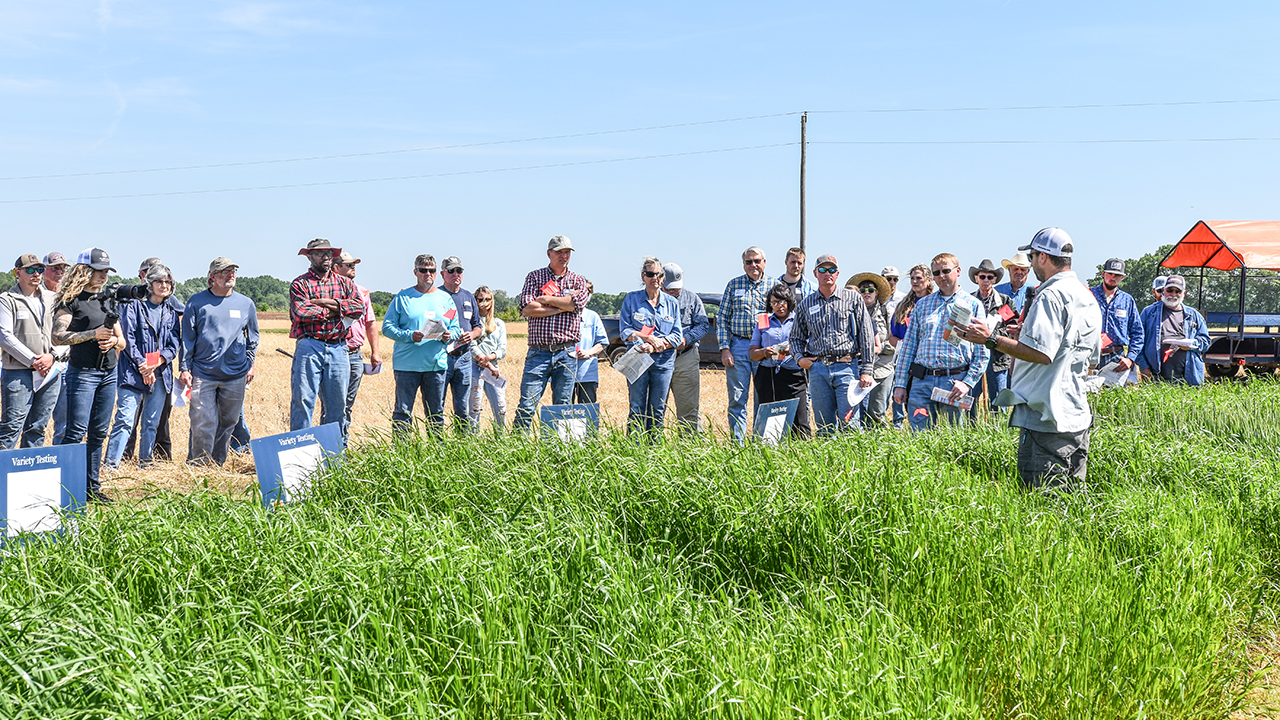Auburn University
Variety Testing Program

Variety evaluation is also critical to plant breeders, both from universities and industry. Prior to releasing a new variety, these breeders typically evaluate their lines in independent variety trials. This ensures that they have unbiased data from multiple years and locations to support the release of their new variety.
The mission of the Auburn University Variety Testing Program is to provide research-based, unbiased results on the performance of various crop hybrids, cultivars, and varieties to the agricultural community in Alabama. We are intent on conducting these trials in a manner that will result in maximum biological yield through methods common to the top-producing farms in Alabama.
We are committed to providing this information in a timely manner for its use during the decision-making process. The success of the program rests on our ability to help Alabama producers provide a safe, dependable source of food and fiber for all families as well as an economic sustainability for theirs.

Henry Jordan
Variety Testing Manager, Research Associate IV
Subscribe to AU Variety Testing Updates
Annually, the Auburn University Variety Testing Program conducts trials on corn, cotton, soybeans, peanuts, grain sorghum, wheat, barley, oats, triticale, small grain forages, and ryegrass.
Trials are conducted on Auburn University owned and operated agricultural research stations across the major geographical regions of the state. The research conducted at each of these locations can provide stakeholders with data that can be more representative of their growing conditions.
2023 Sorghum Variety Trial Entry Form
February 1 - Entry forms for the 2023 Auburn University Garin Sorghum Variety Trials are now available. Grain sorghum will be late-planted, behind small grains, at the Wiregrass Research and Extension Center in Headland.
2023 Soybean Variety Trial Entry Form
February 1, 2023 - Entry forms for the 2023 Auburn University Official Soybean Variety Trials (OVTs) are now available. Entry forms are due by March 17th. Seed is due by March 24th. Entries can be submitted in one or more of the following categories: Early Planted...
2022-2023 Forage Cold Damage Update
During the 2022 Christmas break, Alabama experienced a SEVERE cold snap. What makes this event unusual is how fast temperatures dropped. It went from t-shirt weather to sub-freezing overnight, and temperatures remained below freezing for several days. As a result,...
2023 Corn Variety Trial Entry Form
January 10, 2023 - Entry forms for the 2023 Auburn University Official Corn Variety Trials (OVTs) are now available. Entry forms are due by February 17th. Seed is due by March 1st. Entries can be submitted by region (North, Central, South). The North and South...
Performance of Cotton Varieties in Alabama, 2022
January 9 Lint yields and quality have been uploaded for eleven of the on-farm variety trials. January 4 The analytics portion of the Variety Selection Platform has been updated. There are now presets to save time getting to some of the most popular selections....
Performance of Soybean Cultivars in Alabama, 2022
December 7 Yield data is available for the following OVTs at the Black Belt Research and Extension Center (BBREC) in Marion Junction. Sumter Soil MG4 MG5 MG6 MG7/8 Vaiden Soil MG4 MG5 MG6 MG7/8 Yield data is available for the Escambia County On-Farm trial November 30...
